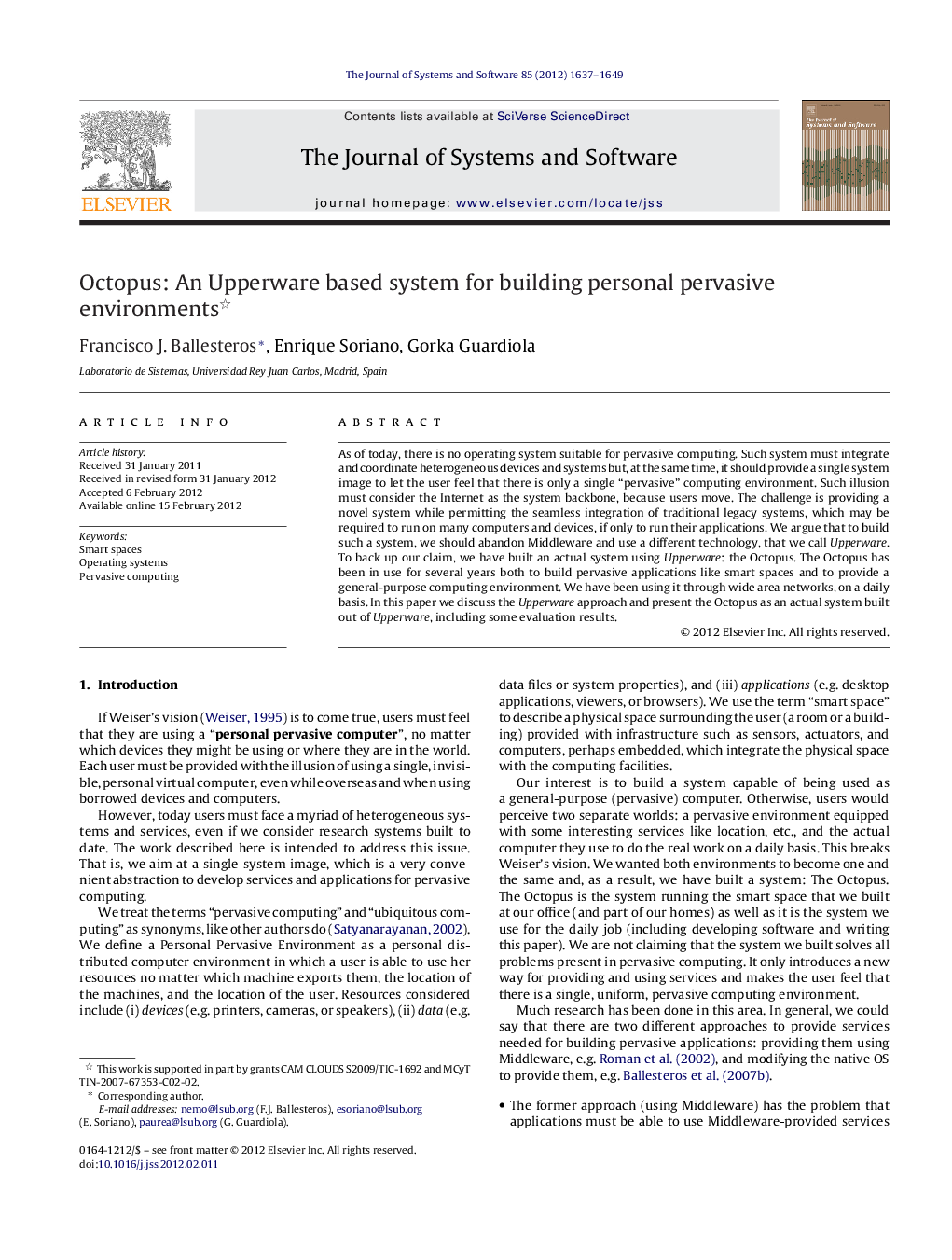| کد مقاله | کد نشریه | سال انتشار | مقاله انگلیسی | نسخه تمام متن |
|---|---|---|---|---|
| 458565 | 696170 | 2012 | 13 صفحه PDF | دانلود رایگان |

As of today, there is no operating system suitable for pervasive computing. Such system must integrate and coordinate heterogeneous devices and systems but, at the same time, it should provide a single system image to let the user feel that there is only a single “pervasive” computing environment. Such illusion must consider the Internet as the system backbone, because users move. The challenge is providing a novel system while permitting the seamless integration of traditional legacy systems, which may be required to run on many computers and devices, if only to run their applications. We argue that to build such a system, we should abandon Middleware and use a different technology, that we call Upperware. To back up our claim, we have built an actual system using Upperware: the Octopus. The Octopus has been in use for several years both to build pervasive applications like smart spaces and to provide a general-purpose computing environment. We have been using it through wide area networks, on a daily basis. In this paper we discuss the Upperware approach and present the Octopus as an actual system built out of Upperware, including some evaluation results.
► Introducing the Upperware approach, as opposed to Middleware and native systems.
► Introducing the Octopus system, an actual system built out of Upperware
► Presenting multiple examples of using Upperware, using the Octopus as a case example.
► Presenting evaluation and experience results, after using Octopus for more than three years.
Journal: Journal of Systems and Software - Volume 85, Issue 7, July 2012, Pages 1637–1649